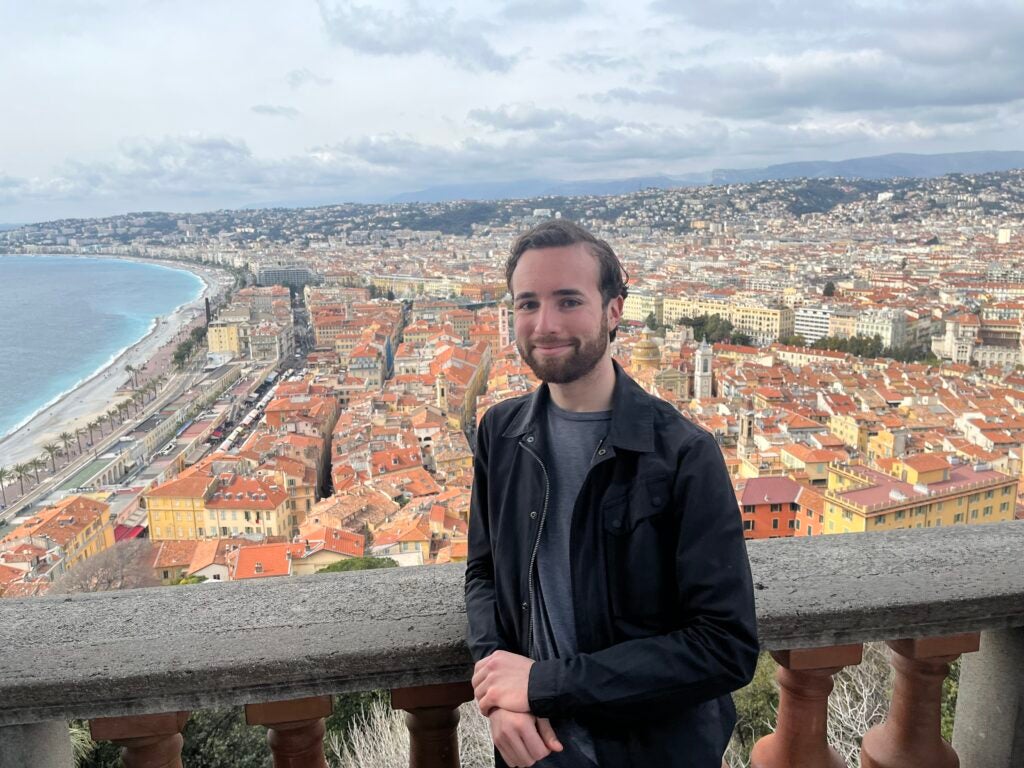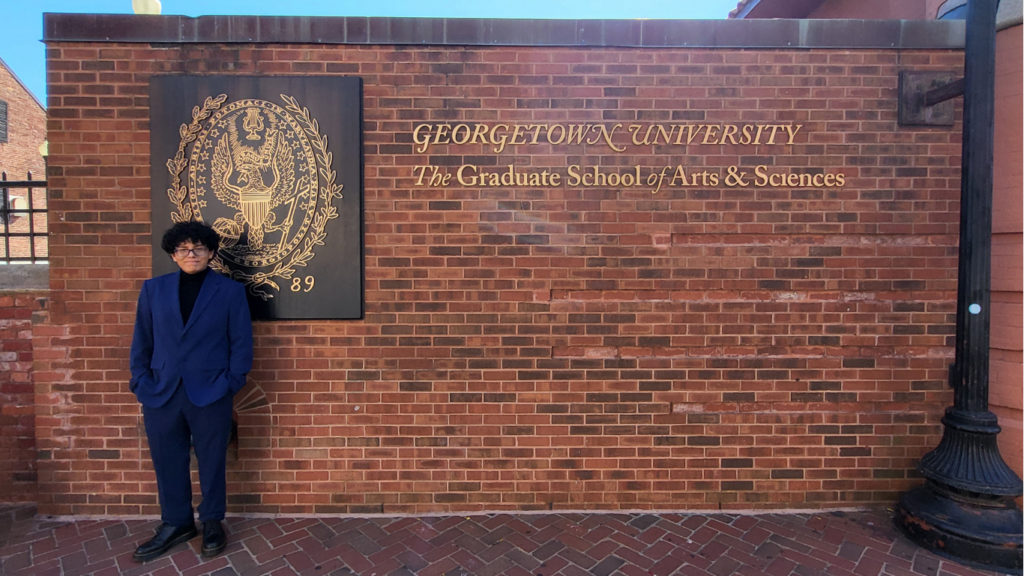Social Scientist Ph.D. Called to Be a Researcher on African Politics
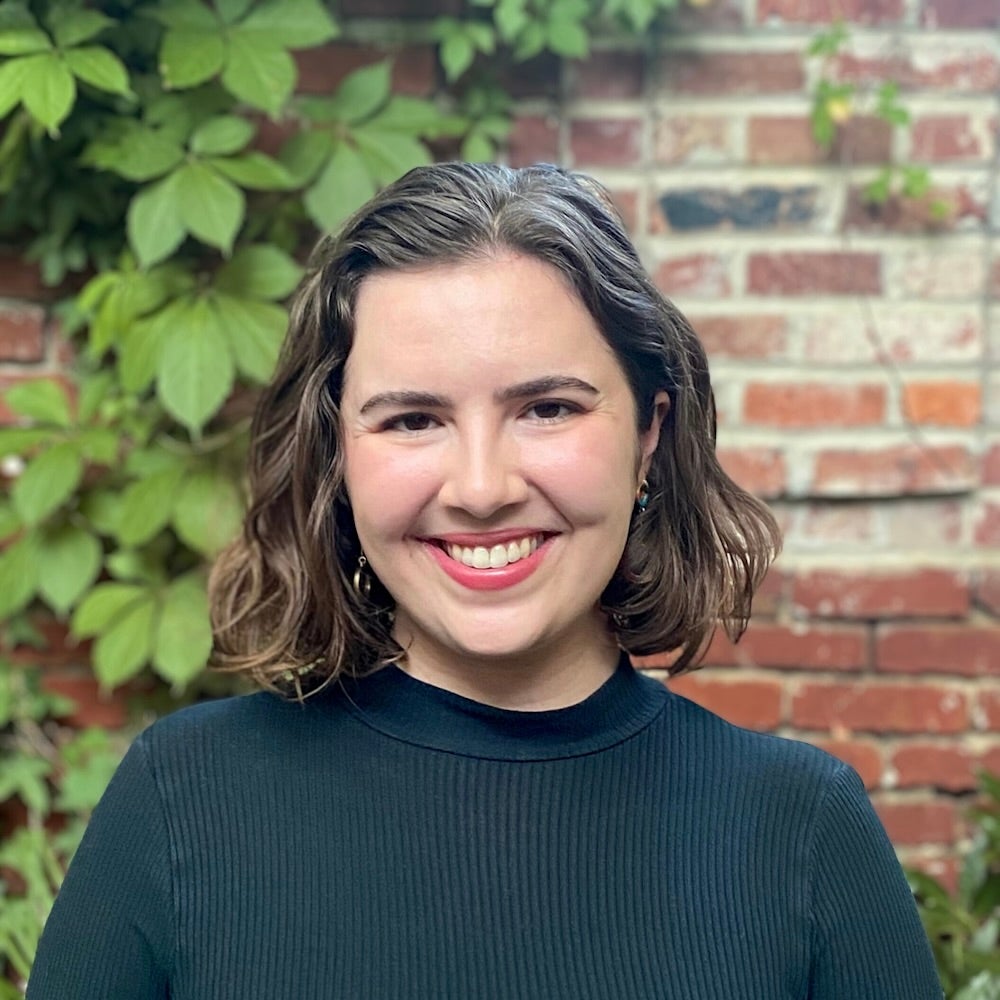
Claire Hazbun
Claire Hazbun (SFS’20, G’30) isn’t new to Washington, DC. Originally from West Lafayette, Indiana, Hazbun came to Georgetown University to pursue a degree in international politics and African studies from the Walsh School of Foreign Service.
After earning her bachelor’s, Hazbun worked at an NGO where she spent a year supporting the Ethiopia portfolio before pivoting to the evaluation and research team. Her desire to go deeper on the research side of African politics is what eventually led her back to academia.
A recipient of the Patrick Healy Graduate Fellowship, she returned to the Hilltop this fall for her Ph.D. in government. Hazbun looks forward to conducting research, taking classes and spending time with others in her cohort as she embarks on this next step in her career.
Global-Minded Research
The root cause of Hazbun’s academic interests was planted in high school where she was a competitive debater and gravitated toward discussions on international politics. Her favorite topics were political violence and state fragility, particularly one topic on the use of force in UN-peacekeeping operations.
As she completed her undergraduate thesis work, Hazbun worked closely with Professors Lahra Smith and Ken Opalo. The fall of her junior year, she studied abroad in Cameroon researching the Anglophone secessionist conflict from Francophone regions, based out of the capital city, Yaoundé. Hazbun interviewed almost 100 Cameroonian anglophones, learning about their experiences within the separatist conflict as displaced people.
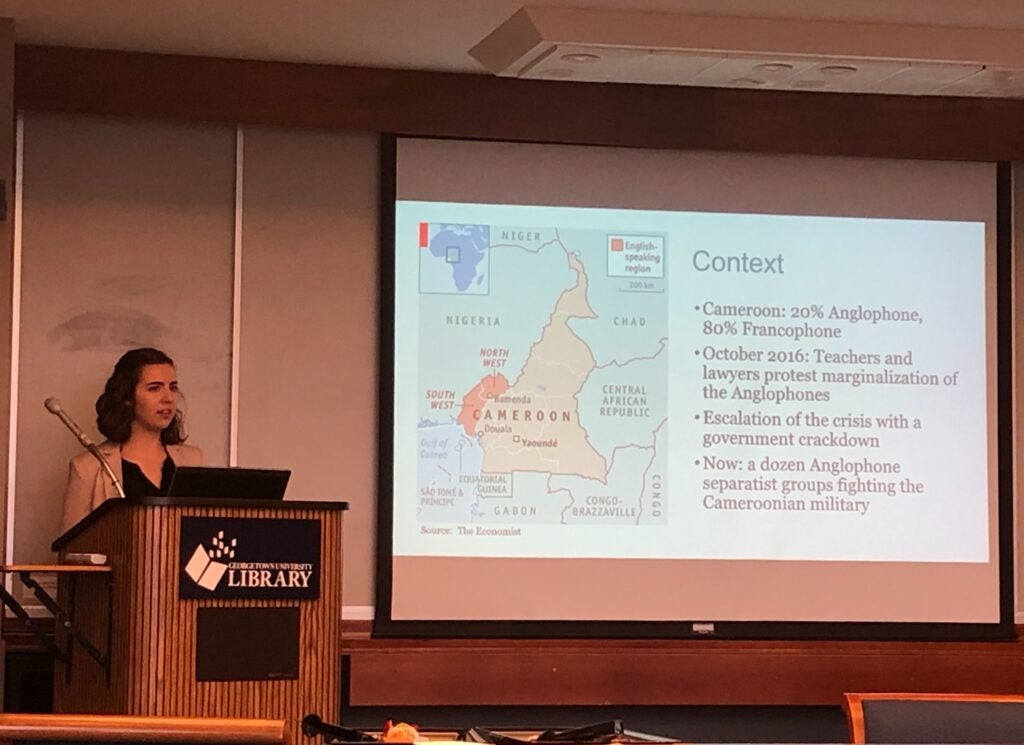
Hazbun presents research on Cameroon’s Anglophone crisis in Lauinger Library (2019)
The summer between her junior and senior year, she was supported by the Raines Research Fellowship, which is awarded to students conducting independent research and who develop the project through to its completion. During this time, she focused on researching the dynamics of the conflict in the Cameroonian diaspora.
After graduation, her drive propelled her into the workforce. However, Hazbun felt called to be a researcher after serving in progressively more responsible roles in international development in Washington, DC. Colleagues supported her throughout the graduate application process, providing encouragement and advice from their own doctoral studies. Their key takeaway: earning a Ph.D. is a marathon, not a sprint.
Within the comparative government program, Hazbun is excited to dive deeper into both thematic and regional topics. On the thematic side, she’s interested in political violence, identity and state fragility. On the regional side, she wants to focus on sub-Saharan Africa.
“The continent is so incredibly diverse and dynamic. It really provides an opportunity with so many countries to understand topics from a lot of different perspectives,” said Hazbun.
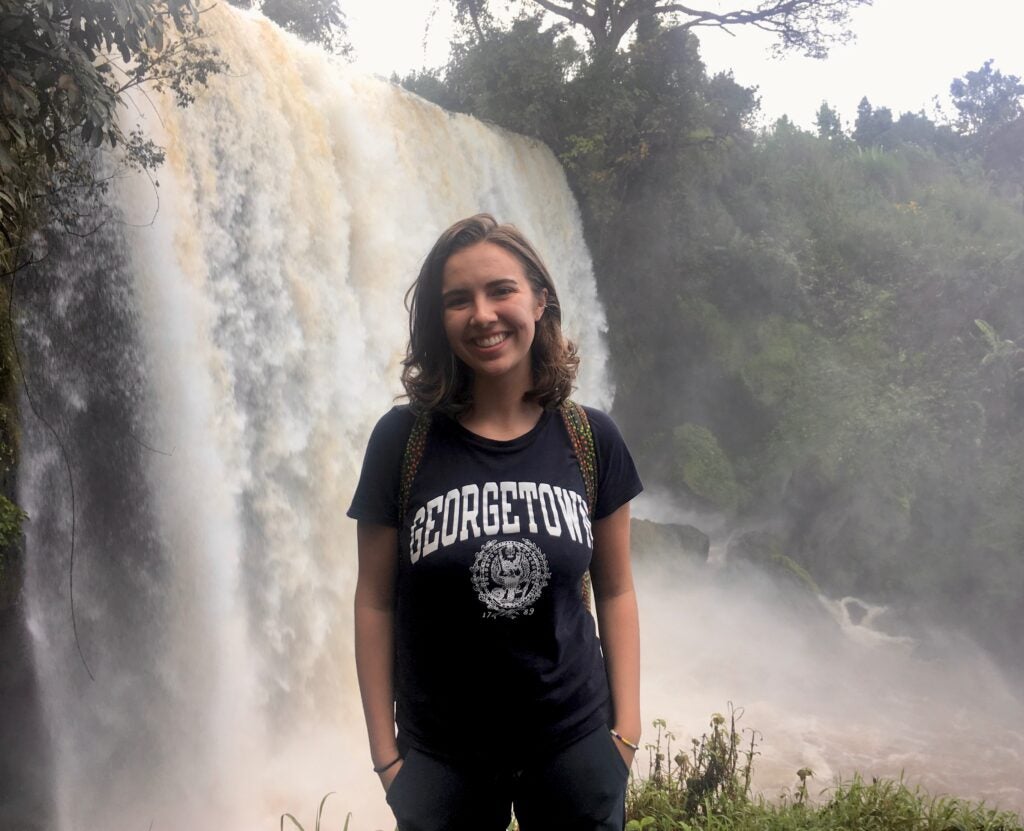
Hazbun in front of a waterfall in the western region of Cameroon (2018)
Given that DC is the epicenter of global politics and policy, Hazbun wanted to stay in the area not only because of the life she’d been building here, but also because it felt like the most natural fit.
“Georgetown’s government department is truly methodologically pluralistic,” said Hazbun. “They offer a well-rounded education in both quantitative and qualitative methods, and that’s something that really made Georgetown stand out.”
Hazbun also noted that in returning to her undergraduate institution, she would be able to hit the ground running, which she said was comforting in the decision-making process.
Bridging the Policy Gap
After a four-year break from school, Hazbun is looking forward to forming connections with her cohort, diving deeper into topics of interest and building on existing mentor relationships. While a Ph.D. wasn’t always her end goal, in part due to the academic job market, she has discovered a wealth of opportunities this fall semester for someone like her interested in applied research.
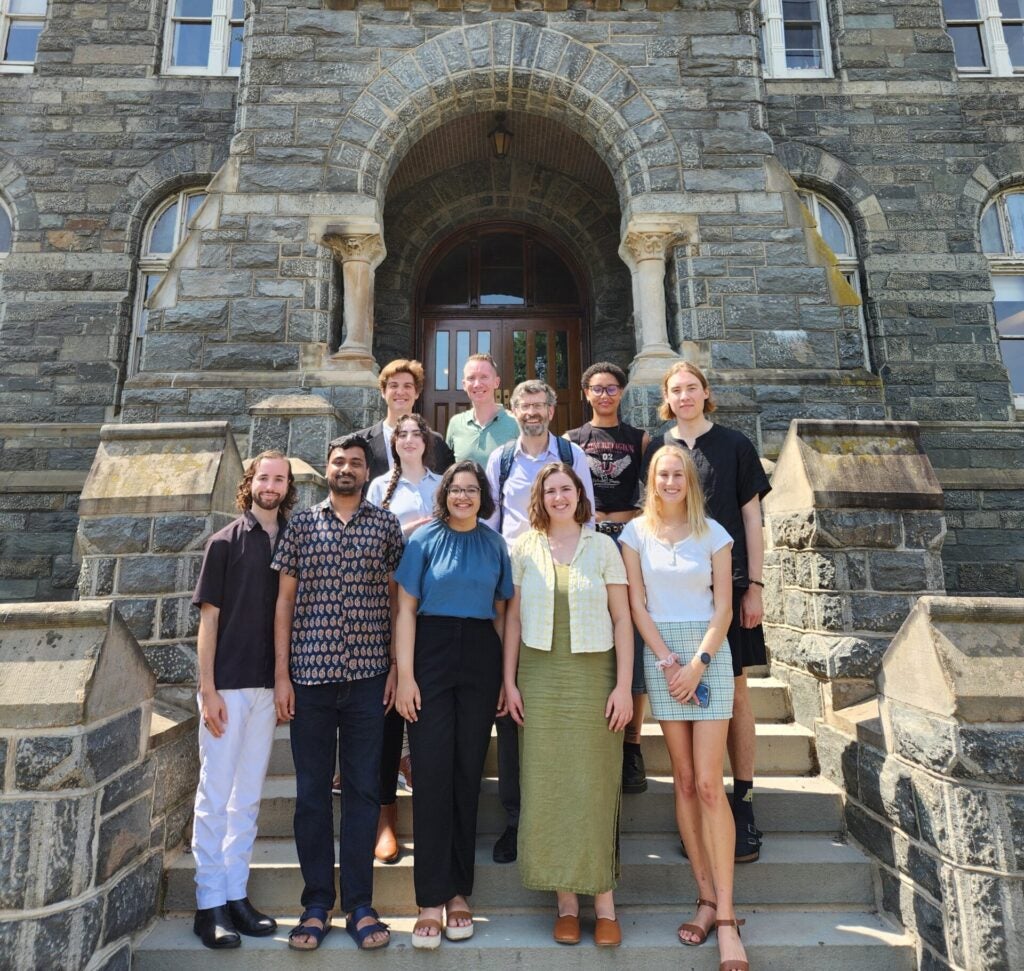
Hazbun with Ph.D. government cohort and Director of Graduate Studies (center) on the first day of class (Fall 2024)
“I just realized that I don’t see any other career besides research, and high-level research – not just working on research projects – but being able to design and pursue my own research agendas,” Hazbun reflects.
She is excited to take a research methods course with renowned qualitative methodologist Andrew Bennett. Additionally, Hazbun plans to continue her thematic research with Professors Smith and Opalo, and further expand her thematic interest in political violence working with Professors Laia Balcells and Yuri Zhukov.
Looking beyond her dissertation, Hazbun hopes to expand the use of more effective approaches to conflict resolution in governments around the world. Relatedly, she wants to bridge the gap between academia and policy.
“There are a lot of incentives-based reasons that it’s so hard for academics to inject their work into the policy world,” says Hazbun. “I hope that my experience and interest in working on policy will help make that connection.”
Connect with Claire on Twitter/X.

